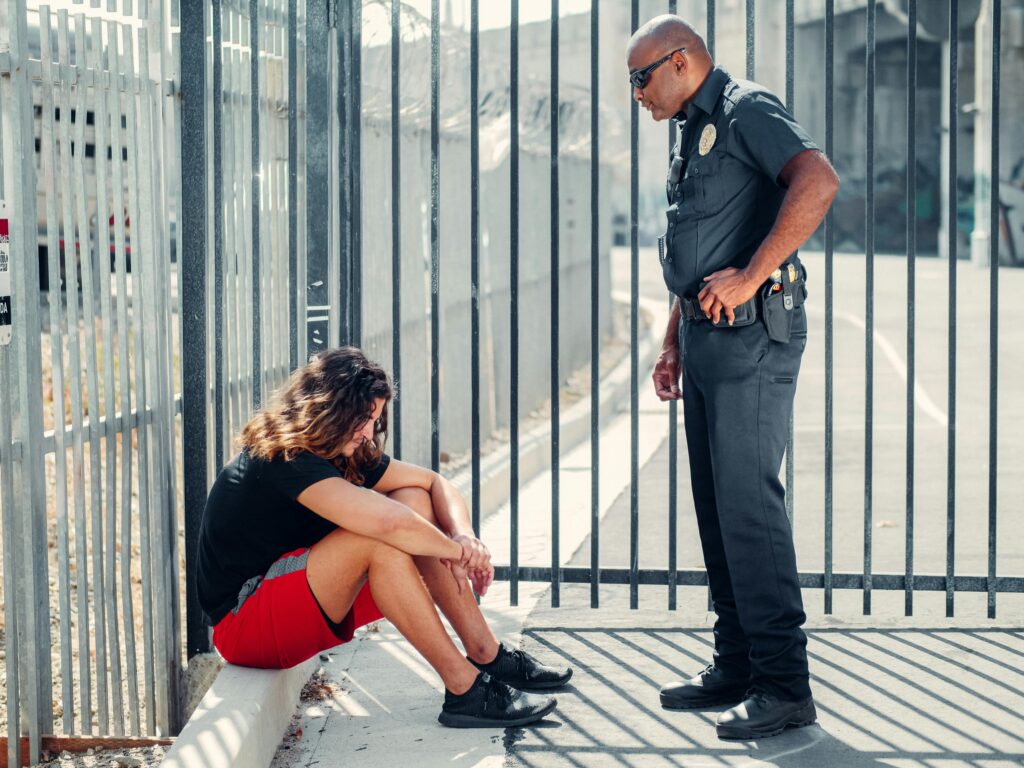Do I Have to Give Police My ID if They Ask in Nevada?
Being stopped by the police can be a nerve-wracking situation. Cooperating with whatever law enforcement asks you to do is generally a good idea, but it’s important to know your legal rights. Have you ever asked, “Do I have to give police my ID if they ask in Nevada?” Surprisingly, there are instances where you do not have to.
Request a Legal Case Evaluation

Nevada Laws on Presenting Identification
Identifying yourself is different than showing a police officer your ID or driver’s license. Under Nevada’s stop-and-identify laws, you must identify yourself to law enforcement in some situations, but you are not required always to carry an ID. The exception, however, is when you are driving. You should have your ID with you any time you drive, as you must show proof of your identity and driver’s license when asked.
Also, the police are legally allowed to detain you for up to 60 minutes to confirm your identity when they reasonably suspect you are involved in criminal activity – especially if you refuse to identify yourself. However, this does not mean you are legally obligated to show them an ID at any point.
Identifying Information
Providing identifying information does not mean you must show a police officer your ID. You must only provide your name in Nevada when asked to identify yourself (except when driving a motor vehicle).
Other identifying information you can volunteer includes your address, destination, or an explanation of your actions.
When Might A Police Officer Ask for My ID?
The only circumstance in which you are obligated to present a police officer with your ID is when you are involved in a traffic stop. In this situation, your ID serves as proof that you have a license to drive. During other encounters, you may be asked to identify yourself, but you do not have to show ID.
In the United States, interactions between individuals and law enforcement officers are divided into three categories: consensual, detention, and arrest. During these encounters, you may be asked to identify yourself. However, you still have legal rights, even if you are arrested or under suspicion of committing a crime.
Consensual Encounters
During this encounter, a police officer will approach you and initiate conversation or ask you questions. Consensual encounters are casual – they do not involve force, commands, or the use of lights or sirens on a police car.
You are not obligated to show your ID in this scenario. You are not under suspicion of a crime and are free to end the interaction at any point. Here, you have the right to:
- Walk away from the conversation
- Refuse to identify yourself or show your ID
- Tell the police officer you do not want to speak to them or answer questions
Sometimes it is not always clear if an encounter with the police is consensual. When in doubt, ask the officer, “Am I free to go?” If the officer prevents you either by force or with commands, the interaction moves to investigatory detention or a terry stop.
Detention or Investigatory Stop
Under some circumstances, a police officer can detain a person they think has committed or is in the process of committing a crime. Fourth Amendment rights apply to investigatory stops. The officer must have a reasonable suspicion to detain you, such as possessing a suspicious item (like one that can be used as a weapon), matching the description of a suspect, or fleeing a crime scene.
During this encounter, you do not have the right to walk away from a police officer, and you must identify yourself. However, this still does not mean you need to show your ID. You have the right to an attorney and can exercise your Fifth Amendment right to remain silent after you have verbally identified yourself.
Arrest
An arrest means that a police officer has probable cause that you have committed a crime. This encounter is different from reasonable suspicion, which states that a police officer has hard facts or evidence that would lead a reasonable person to believe you committed a crime. In this situation, the officer will ask you to identify yourself, but your Fifth Amendment rights are still enforced, and you do not have to present an ID.
Request a Legal Case Evaluation
What Happens if I Refuse to Show My ID to the Police?
Apart from traffic stops, you are not legally required to show a police officer your ID. However, refusing to identify yourself when detained or arrested can lead to additional problems. For instance, it may implicate you in a crime or be classified as an obstruction of justice.
You should never be penalized for refusing to show your ID to a police officer when you are not driving a vehicle. If you are, this may be a severe misuse of authority.
Contact a Las Vegas Criminal Defense Attorney
Your legal rights may have been violated if you were stopped, detained, questioned, searched, or arrested because you refused to show your ID. Contact a Las Vegas immigration and criminal defense lawyer from De Castroverde Law Group today to learn more. We are here to answer your questions and help you with ID-related legal issues.